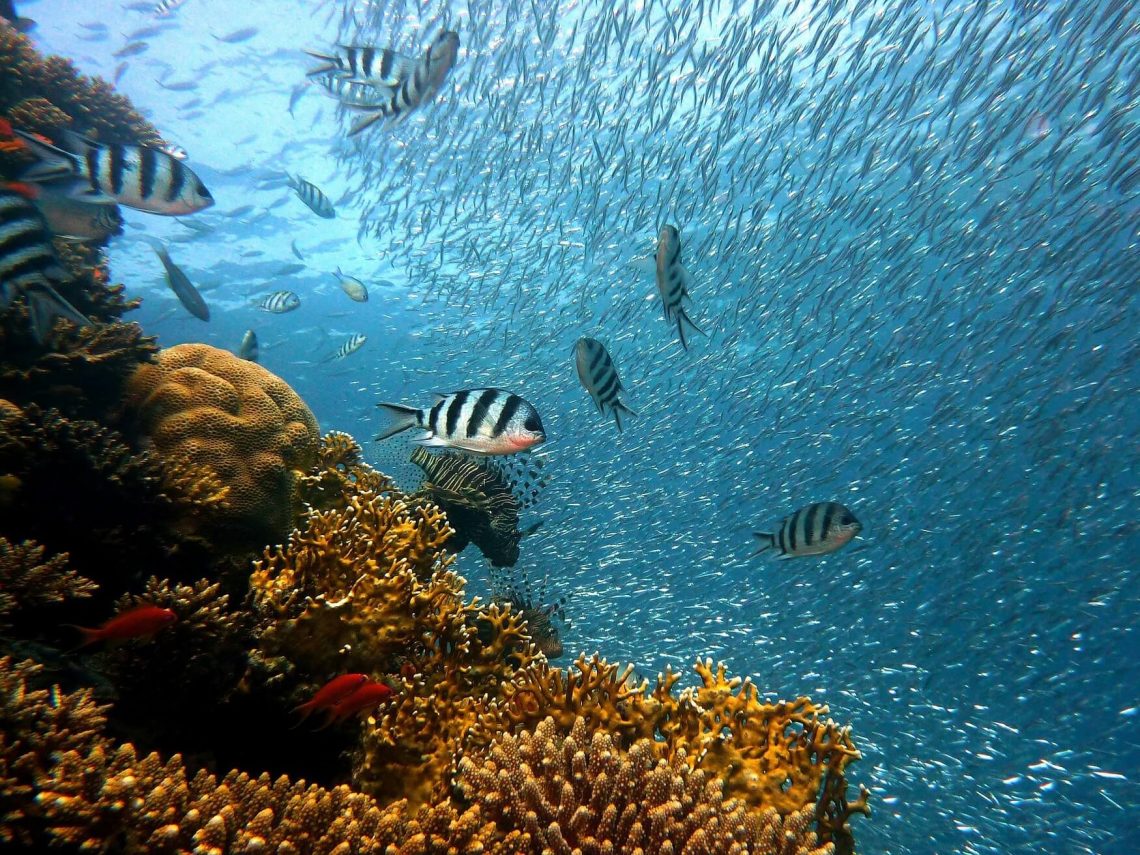
Coral Reefs And Ocean Acidification: A Beautiful Disaster
What Is Ocean Acidification?
Coral reefs and ocean acidification now come hand in hand.
Ocean acidification is probably among the greatest threats to the future of coral reefs.
It’s exactly how it sounds- the oceans are gradually becoming more acidic. Scientists have already observed a drop from a pH of 8.2 to 8.1 and they expect it could drop as low a 7.8 in the future.
It doesn’t sound like much does it? The effects, however, could be larger than you might think.
What Causes Ocean Acidification?
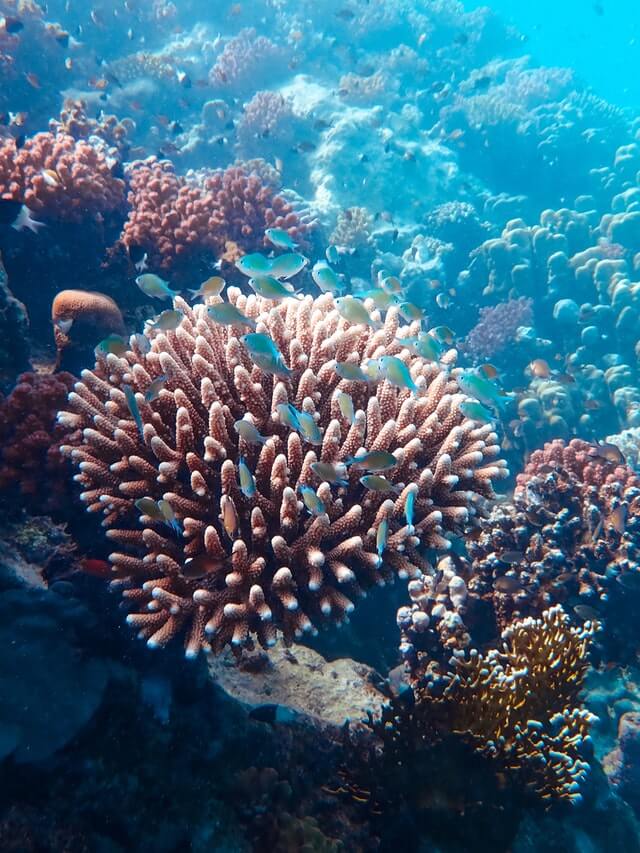
We all already know that our carbon emissions are rising. We are all aware of the effect that it’s having on our climate. What you might not be so familiar with, is the effect it’s having on our seas.
The ocean is pretty amazing in lots of ways, but one huge way that it helps us is that it’s the largest carbon sink on the planet. Almost half of our current carbon emissions are being dissolved in the ocean every day.
“Great!” you might say, “That means it’s not in the atmosphere causing climate change!” and right you are, except that this pesky gas causes problems in the ocean too.
When carbon dioxide is dissolved in water, it undergoes a series of reactions. The end result leaves us with many extra hydrogen ions in the water. Hydrogen ions are what cause acidity (incidentally, this is why fizzy drinks are acidifc).
More hydrogen ions leads to a lower pH.
Why Is Ocean Acidification a Problem?
There are a couple of impacts that a more acidic ocean will have.
1. Less calcium carbonate- also found in the ocean is an ion (charged molecule) called carbonate. Carbonate plays a really import role in making shells by forming a molecule called calcium carbonate.
The problem is, those extra hydrogen ions also LOVE to react with carbonate, taking away the opportunity for it to form that important shell material.
2. Organisms are adapted for the current pH- evolution over many years has lead to organisms in Earth’s oceans being perfectly adapted to life at pH 8.2. We are changing this pH too quickly for them to evolve at the same time. Many organisms will simply not survive this rate of change.
The Link Between Coral Reefs and Ocean Acidification
To understand why coral reefs and ocean acidification have become so tied one another, we need to understand what coral actually is.
Just as an aside here this actually seems to be a little-known fact in my experience so memorise and impress your friends!
Coral is actually made of three parts. It is primarily a colony of lots of small animals called polyps. The polyps produce a hard skeleton made of calcium carbonate (starting to see the link here?) that forms the structure of the reef. Inside the polyp, live zooxanthellae- microscopic algae.
The zooxanthellae and the polyps have a symbiotic relationship- they each depend on the other to provide the tools for survival.
Zooxanthellae photosynthesise and provide energy for the coral. The polyps, in turn, provide the algae with nutrients and protection.
As you may by now have realised, the problem here is that as a result of ocean acidification, hydrogen ions are stealing away that much needed calcium that corals use to build their skeletons.
Coral skeletons form the basis of a reef. If coral can’t build them, the reef cannot exist.
Coral Bleaching
Meanwhile, our warming climate is causing our reefs another headache: coral bleaching.
Unfortunately, the zooxanthellae are pretty sensitive, and can’t cope with rising temperature of the ocean. As the water warms, they leave the coral. The polyps can no longer survive and as zooxanthellae also provide the colour that we see in healthy coral, all that is left is a white skeleton.
This is a phenomenon known as coral bleaching and it’s becoming more and more common. The Great Barrier Reef in Australia has this year it’s most severe bleaching event ever- its 3rd in the last 5 years.
They don’t die straight away. There is a short period where it’s possible for them to recover, but once it’s up the damage is irreversible.
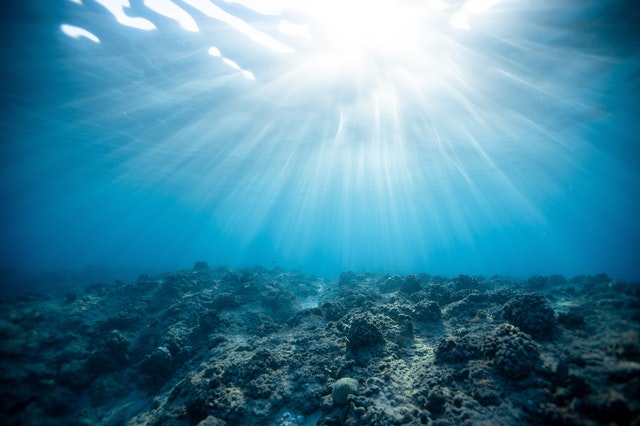
The Effects of Ocean Acidification and Coral Reef Destruction
Loss of Biodiversity- Feeding Grounds and Nursery
If the marine environment was assigned biodiversity hotspots, they would be coral reefs. They are incredibly rich in number and variety of species (head here to find out why that is important).
They act not only as a home to many species of fish and other marine life, but also act as feeding grounds, nurseries and even cleaning stations for many pelagic animals (live most of their lives in the open ocean) like sharks and turtles.
This isn’t exclusive to coral reefs either. Seagrass meadows could also be affected. Though they are less likely to die as a result of ocean acidification, their distribution is expected to change. This means more marine life faces habitat loss.
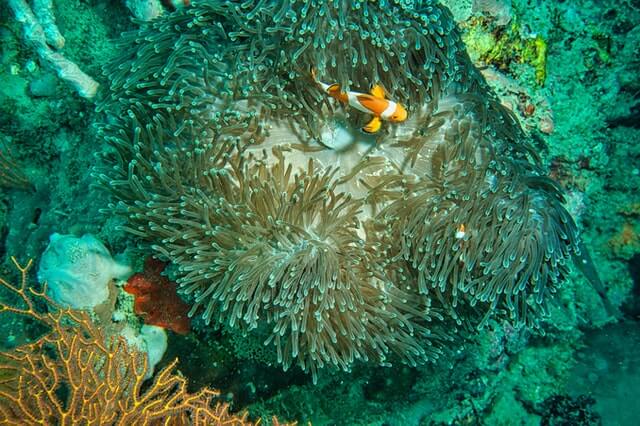
Why Should I Care About Ocean Acidification?
To marine scientists and those with an interest in the natural world, ocean acidification feels like a hugely pressing issue, but to most of the general public, it seems to be something of a secret.
I think it’s probably because its hard to get your head around how such a seemingly insignificant change to something we can’t see could have any consequences that would reach us at home.
We have to remember that everything is connected. Nature is a house of cards. If one thing shifts, the rest ceases to function as it did before. The implications are unpredictable.
As we lose coral, and those organisms that can no longer effectively build shells, the whole food chain shifts.
A 2017 government report estimates that the cost to the UK economy in lost revenue from fisheries could be around £74.7 million by the end of the century. We would also lose coastal protection and a whole branch of the tourism industry, and that’s just the impact to humans!
The Future Outlook
Much of the science around coral reefs right now does seem like they are headed for an inevitable doomsday.
That may not be far off the truth. The documentary, Chasing Coral, does a fantastic job of explaining all of the many threats that reefs face.
But it also shines a light on the many people who care deeply about coral reefs.
In the last few years, practices like reef fragmentation (yes I know the name makes it sound destructive) which could help to regenerate the reefs.
Their jobs will be a whole lot easier if we can all do our bit to help out.
One Wild Thing
There’s no easy fix on this one.
The only thing we can do is to reduce our carbon emissions.
Even if you live nowhere near the coast, your carbon emissions make a difference to the pH of the ocean, because guess what? Air moves!
So this week, I challenge you to try and make just one (though of course you can do more if you like) of these teeny tiny changes to your lifestyle:
- Eat an extra meal without meat compared to your normal week.
- Aim to switch off every light as you leave the room and don’t leave your TV/computer on unnecessarily.
- Walk to one place you would normally drive or opt for public transport once instead of driving.
- Replace your bulbs with energy saving light bulbs.
- Switch to a green energy provider.
- Stop yourself from buying something you don’t really need.
It doesn’t have to be life changing- baby steps can make a difference!
My last thing here is a brief “flex” (ugh, who even am I?) because the one scientific paper I’ve ever been named on is on ocean acidification. I got to work on this study as part of my final year project for my degree. You can read it here if you are interested. Here I am below, working on the study at Plymouth Marine Laboratory!
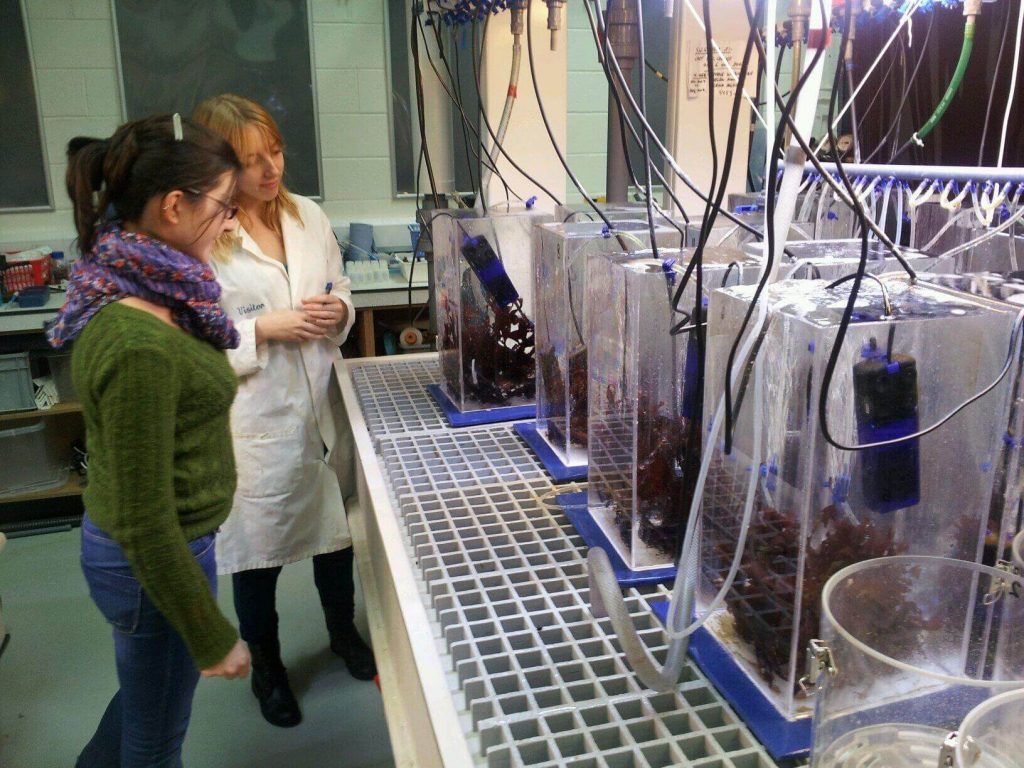






2 Comments
Pingback:
Pingback: